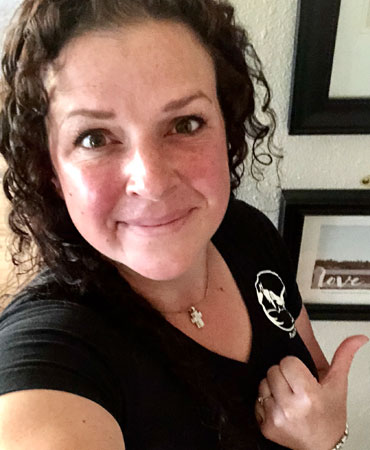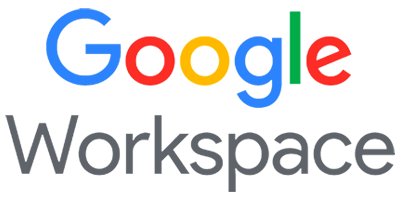At this point in our internet lives, we have all been victims of the chain e-mail, the “share if you agree” post, the Nigerian prince just looking for love. Our bullshit detectors are phenomenal; they’ve had nearly 20 years of priming since the internet took flight.
Scam? Me? No mam.
Here’s the thing: good scammers keep up. They take into account our knowledge, and they continuously innovate on their scamming game. Scams don’t always look like scams. They often look like well disguised opportunities.
Think ahead and know what to look for when it comes to marketing scams:
Referral Key
Online marketing has the key to my heart. The Referral Key is not that key. Not at all. Not even close.
You may have seen a Referral Key before. It has been circulating through email and LinkedIn for nearly 10 years.
Here’s its spiel:
You check your email or LinkedIn messages; this spam mail has no boundaries. Your contact, (insert favorite person’s name here), has sent you a new message.
“Heck yeah! I love a good email, and I sure do love my friends,” you say to yourself as you open your messages (or you would say if this were some quirky, futuristic, 1969 sitcom).
In this email you see something like this:
“Hey _______,
Hope things are going great for you! I want to refer your business to my network! So excited to connect! Just click the link below. Thanks!
Link: www.pleasedontclickthislinkyouwilldefinitelyregretit.com.
Sincerely,
Your Best Pal Who Would Never Steer You Wrong”
You click the link. Here’s what has happened:
- You done goofed.
- Referral Key has snatched & copied your contacts out of their tidy home in your address book.
- Everyone is getting a wonderful e-mail on your behalf to sign up for a Referral Key! Yay!
Nope. Check, please. We’re out of here.
Referral Key walks and talks like a legitimate referral website (and I guess for all intents and purposes, it is), but you don’t want anything to with this. Its whole dynamic is to mass market to everyone in your contacts by making it look like YOU are presenting your contacts with a “wonderful” opportunity in the name of networking. Sleazy, right?
Have you ever seen your friend’s account spamming Rayban offers for a $15 pair of Raybans? Yeah, don’t click that.
This isn’t how networking works. Not honest networking, at least. Now you look gullible, or even worse, unreliable, to everyone in your network because you’ve just sent them a spam email. It happens. It’s okay. But it’s annoying. Don’t fall for it.
These days, it isn’t just Referral Key. In fact, Referral Key seems to be dying down a little bit (even though they are still sending out follow-up emails 10 years later.) Be very careful with the networking apps you download. Contact information is a valuable asset so don’t just go giving it away to every app or website that looks like it can help you.
 With referral scams, everything happens so fast; you don’t even know it has happened until it’s over and you’re mumbling expletives under your breath. Be careful with what you click and what you sign up for. Give it a Goog. Read a review. Don’t fall for it.
With referral scams, everything happens so fast; you don’t even know it has happened until it’s over and you’re mumbling expletives under your breath. Be careful with what you click and what you sign up for. Give it a Goog. Read a review. Don’t fall for it.
The Google Robocall
“This is Beck calling on behalf of Google.” Sure, Beck. Sure, you are.
We can’t escape spam callers. They’re making it so difficult these days. They change their numbers, send mass phone calls, make it look like Grandma’s calling. They don’t stop.
Here’s it spiel:
You get a phone call from someone claiming to be Google. They tell you they’re going to take down your Google listing. Or maybe they need to update your Google listing. Sometimes they even offer to help you boost your search rankings.
Big ole nope. “Nope” right on out of there. Hang. It. Up.
Recognize the potential scam right away:
Calls from 650-203-0000 or 650-206-5555 in the US, and +6498847777 in New Zealand, will be from Google. Go ahead, add them to your contacts. If your caller ID doesn’t say “Google” after that, it ain’t Google. Period.
Say you get a call from a random number claiming to be “Google,” and they are super convincing. You just want to see what’s up.
Ask yourself these questions:
- Are they asking me for personal information? (this includes verification codes, passwords, DOB, etc.)
If they are: scam. Google will never ever ever ask for your info over the phone. (This goes for the majority of reputable businesses. No one will call you up asking for identifying information).
Side note: Don’t be fooled by someone claiming to send a verification code or notification to your phone via the Google apps. This seems legit, but anyone can send a verification code as long as they have your email. Google will NEVER do this. Never. Ever.
- Are they trying to sell me something?
If they are: scam. Google doesn’t sell any services through telemarketing. Zero.
- Are they threatening you or your business?
If they are: scam. Duh.
Things you can say to them:
- Could you send me an email from an official google email address?
Like any legitimate corporation, especially one as big as Google, they’re using a company email service. beckworksatgoogle@gmail.com IS NOT a legitimate e-mail for Google.
- I’m going to hang up and call the number from Google’s website.
If they’re actually from Google, they’re not going to care if you hang up and call back. If they get hostile at this suggestion: scam.
If you have the time, report these numbers to Google. They try to have as many spam numbers as possible removed. And if you need help with anything Google-related, you can always visit support.google.com or give them a call at their toll-free number.
The Information Puzzle
This one is less of a scam and more of a significant annoyance. If you see things like this (or are doing them), back away slowly, and no one gets hurt.
Here’s it’s spiel:
Someone has a service or product to offer you. You think it’s cool. You could probably use it. For more information, they need your email. Cool. They can have it.
“Oh, and by the way, can we get your phone number?”
I guess.
“Oh, and how about you sign up for our newsletter?”
I mean, I’m alright with that.
“And if you could just provide us with your first name and last name?”
You got it.
“And your dog’s name, and your favorite tv show, and the receipt from your most recent Target purchase, and top five favorite scents, T-shirt size, and whether you prefer your coffee medium or bold or not at all?”
Amos, Game of Thrones…hold up. What was the product again? How did I get here? What is going on?
This is so common. By the time you get to the end of the maze, you can’t even remember why you wanted to see what was at the end.
Let me say first that there’s nothing wrong with exchanging a little info to access something of value. Maybe you have a guidebook or a few free classes that you want an email address for. More power to you.
However, don’t set up barriers that don’t need to be there. Don’t feel obligated to jump over those barriers for others, either. The best people to work with are going to let their walls down and be their authentic selves.
They’re going to show you why you need what they have, and they’ll get it to you because they know that what they offer is worth it.
On that same note, what you have to offer is worth it. Your information is of value. Don’t just give it away at the click of a button. Do your research. It’s the digital age.
Everything (and I do mean everything) can be found on the internet. Be aware. Be vigilant. And take your bullshit detector out for a little practice here and there. Thank me later.





 With referral scams, everything happens so fast; you don’t even know it has happened until it’s over and you’re mumbling expletives under your breath. Be careful with what you click and what you sign up for. Give it a Goog. Read a review. Don’t fall for it.
With referral scams, everything happens so fast; you don’t even know it has happened until it’s over and you’re mumbling expletives under your breath. Be careful with what you click and what you sign up for. Give it a Goog. Read a review. Don’t fall for it.





0 Comments